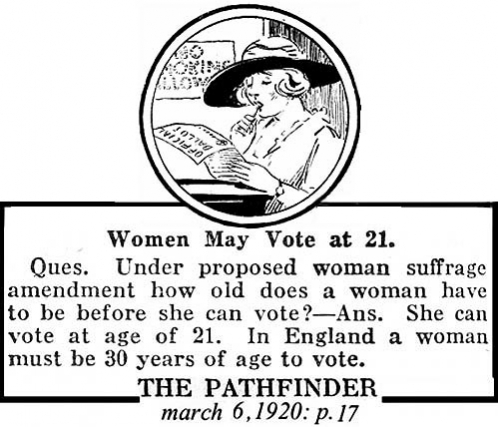|
Womens Suffrage Film Clips  This 1907 article refers to a report made by journalist and suffragist Ida Husted Harper (1851 - 1931), concerning the status of the suffrage movement as it could be found throughout the Western world. A number of interesting issues and seldom remembered concerns are sited throughout this article on the matter of the bullying and boorish ways of those wishing to hamper the advancement of women's suffrage. The author of this 1937 column pointed out that the Equal Rights Amendment had been submitted before Congress for passage each and every year since 1923, and each time it received a "nay" vote. Established in 1913, The National Woman’s Party worked tirelessly to secure the vote for American women - which was attained in 1920 with the Nineteenth Amendment. Flush with this victory, the organization pushed for an additional Constitutional amendment, one that would guarantee the equality of the sexes in the eyes of the law:
"Having received the assurance of Senator Curtis of Kansas, Republican Whip, that he would present their amendment in the next Congress, a delegation of 200 women went to call on [President Coolidge]." This article was written by the well respected British bacteriologist and immunologist Sir Almroth Wright (1861 - 1947) concerning his belief that women should be denied the vote. Relying upon his scientific training, Wright held that women, as a result of their flawed nature, simply lacked a sense of reasoning.
This column recalls the earliest women to serve in the House and Senate (although the tenure of Senator Rebecca Latimer Felton was oddly excluded):
"In 1916, the first Congresswoman was elected. She was Miss Jeannette Rankin (1880 - 1973), a Republican from Montana. On her first day in the House, war was declared; she voted against it. The next Congress had no women." |
MORE ARTICLES >>> PAGE: * 1 * 2 * 3 * 4 * 5 * 6 * > NEXT |
|